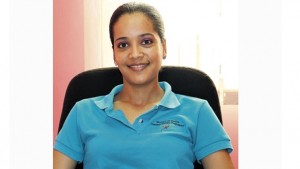
SCOTT… there is more access to information about contraceptives
THE National Family Planning Board (NFPB) has reported an increase in contraceptive use among Jamaican women.
The most recent statistics show that 85 per cent of women have used a contraceptive method and up to 88 per cent use it regardless of educational level. The data also show that 73 per cent of women in a union are using contraceptives.
Director of Prevention and Outreach at the NFPB Marion Scott told JIS News that the increase in the use of contraceptive methods is a result of women becoming more aware of the options available to them.
“There is more access to information about contraceptives, about the availability and where they can get them. With the user fees being eliminated at clinics, they are also provided free to women. In addition to that, women have become more empowered over time in terms of planning their families and recognising the economic impact of having too many or having unplanned children,” she said.
In the 1970s, there was an average of 4.5 children per woman, and the most recent figures indicate that the numbers have shrunk to 2.4 children per woman.
The NFPB is observing Safer Sex Week from February 9 to 13 under the theme: ‘Condom + Contraceptive Keep You Protected’, which underscores the board’s message of dual protection against sexually transmitted infections and unplanned pregnancies.
Scott said while the board recommends the use of condoms along with pills as reliable contraceptive methods, it is also advocating the use of longer-acting injectables.
“We are trying to push the injectables, which last for three months, that we feel are more suitable for young people who are on the go. For those who want to space their children, there is the implant that lasts for five years,” she said.
During this year’s Safer Sex Week, the NFPB hosted five community interventions in Rolands Field, St Thomas; Gregory Park, Tawes Pen, and Ellerslie Pen in St Catherine; and Rema, and Greenwich Town in Kingston. The interventions also included free HIV testing and contraceptive distribution.
“We have been doing a lot of work in reaching those communities and they are heavily populated and they are also where we are likely to see our high birth rates,” Scott said.
She noted that special focus is also being placed on teens, in order to reduce the incidence of pregnancies among the age cohort. She said that while there has been a decline in the number of babies born to adolescents, the rate is still too high.
Statistics from the 2008 Reproductive Health Survey show that there were 72 births per 1,000 women in the 15-19 age group, down from 112 births per 1,000 women in 1997.
“We have accomplished the goal of reducing the number of children born…but we are (increasing our focus on teenage pregnancy) because of the economic and social implications,” she said.
Safer Sex Week is observed every year during the week leading up to Valentine’s Day to capitalise on the heightened romantic activity that accompanies the day.
